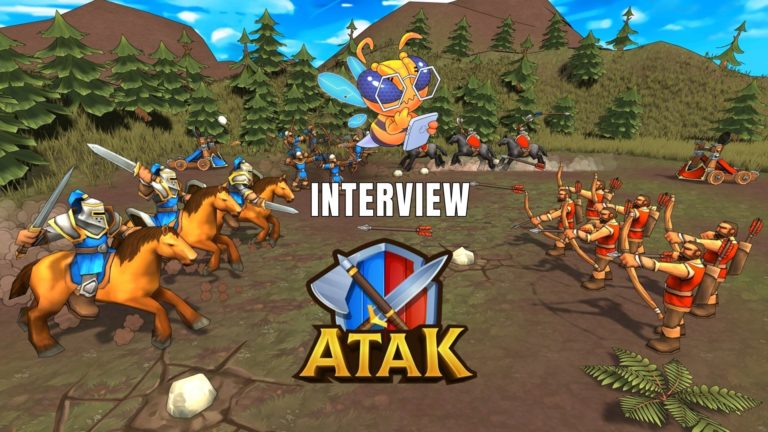
In today’s insightful interview, we had the pleasure of talking with Alex and Theo, the talented duo behind the exciting indie game ATAK. With a unique blend of creativity, passion, and experience, these developers shared their journey in the gaming industry, the inspiration behind ATAK, and the challenges they faced during its development. From the game’s early beginnings to future plans, Alex and Theo offer a fascinating glimpse into the world of indie game development.
What motivated you to join the gaming industry, specifically indie games?
Alex: The main inspiration was playing video games and the creative freedom it allows. You can design your own world and create anything imaginable.
Theo: I discovered sound design while studying Music Technology and it became my professional goal. Eventually, I wondered if I could apply it to video games, and indie games provided a way into the industry.
What is ATAK?
ATAK, conceived by Alex, is a real-time strategy game where players control a group of units to battle against others or AI opponents. The game features a medieval fantasy setting, a single-player campaign, custom battles, and minigames inspired by the ATAK world.
What’s the story behind the name and genre of ATAK?
We chose the name ATAK when we needed a title for a festival we participated in. We’re still considering the meaning behind the abbreviation.
When and how did the idea for ATAK emerge?
The idea started in early 2017 when I (Alex) was practising mechanics and optimization. I chose a specific game to copy its battle mechanics and made changes to improve it.

Were you influenced by the success of similar games?
The main influence came from the interesting mechanics of a game called North & South on the Amiga.
Did you have any game development experience before ATAK?
Alex: I worked for 10 years in small companies, mostly on serious and educational games.
Theo: I had experience as a sound designer on several projects but wasn’t as involved in development.

Did the main concept change over time?
The concept remained the same, but we added content and refined existing features for a more engaging experience.
Can you describe the timeline for ATAK’s development?
The development involved back and forth due to the pandemic, but the core concept of chaotic fast battles was established first. Everything that followed aimed to enrich the world and create a fun experience.
How long did development take and when did issues like inputs and bugs appear?
It took several years and extensive testing, with friends and family helping to test the game. Bugs still appear occasionally, but we feel the game is in good shape.

Why did you choose this style for your game?
Alex: I wanted to create a game reminiscent of those I played growing up, focusing on fun, old-school elements like low polygon counts and hand-painted textures.
How long have you been working on this project and when was the demo launched?
The project began in 2017, but it started slowly with defining the core concept. The demo was released recently and showcases what to expect in the full game.
Did you work on other projects during ATAK’s development?
Alex: I worked on private B2B projects and cannot share details.
Theo: I worked at a post-production company for sound, including localization for Riot games.
What kind of bugs did you encounter during development?
We encountered various bugs of different sizes and impacts, sometimes while testing other features or during friends’ playtests.

Did you need to invest in new equipment for ATAK’s development?
We used our existing personal equipment, which met the game’s requirements.
Is there a plan to expand ATAK to consoles?
We’re considering consoles and mobile devices, as the game would port well.
What are your thoughts on multiplayer mode?
Currently, there’s a local PvP mode. We plan to expand multiplayer for the full game release and introduce an arcade mode.
What’s the future for your studio and ATAK?
We aim to release the full game within a year and, if it’s well-received, expand ATAK with more minigames, bosses, and features.

What advice would you give indie developers planning to publish a project?
Patience and persistence are crucial. Game development involves continuous learning and research. It can be disheartening at times, but seeing your project take shape and witnessing players’ reactions makes it worthwhile. Keep learning, researching, and watching “how-to” videos. Stay committed to your vision and never give up.
As our engaging conversation with Alex and Theo comes to an end, it’s clear that their dedication and love for their craft have shaped the world of ATAK. Their experiences and insights offer invaluable lessons for aspiring indie developers, reminding them of the importance of patience, persistence, and continuous learning. We can’t wait to see what the future holds for ATAK and this talented team, and we wish them the best of luck as they continue to bring their creative vision to life.
